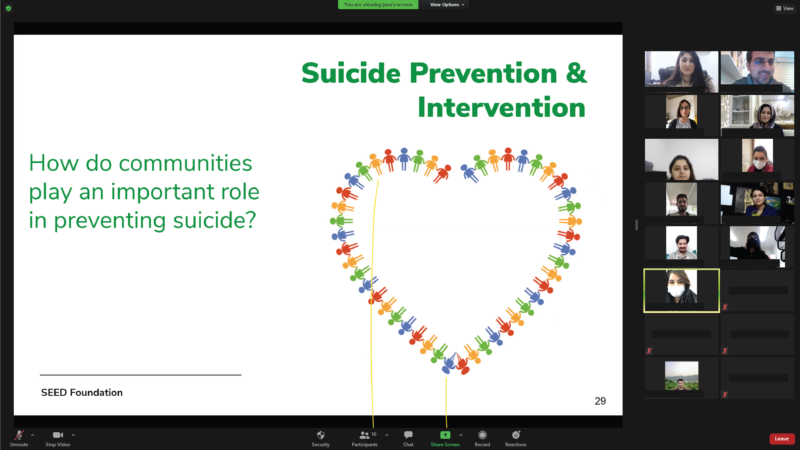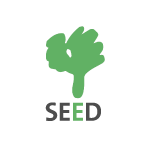
SEED Academy: Ensuring High Quality Services in the Field
Since 2017, SEED Foundation has been leading comprehensive training and capacity building programs for NGOs and government actors. Now, SEED is proud to have launched SEED Academy, an innovative and rigorous training and capacity-building program for SEED staff, launched in December 2020. It is meant to standardize technical quality across SEED’s programming and equip SEED’s field staff to deliver high-caliber services in a challenging environment. The SEED Academy training program is being delivered to all of SEED’s service delivery staff, which includes psychologists, case managers, community coordinators, psychosocial support (PSS) facilitators, community mobilizers, nurses, lawyers, overnight caretakers, center coordinators, and service delivery coordinators. There are currently 63 service delivery staff going through the training program.
“At SEED, we believe in investing in people. That’s not just our clients and the communities we work in but also in our own staff. It’s critical that we support them in improving their knowledge and skills on an ongoing basis, so that our staff can effectively address the complex needs of the populations we serve. We are also committed to our staff’s professional growth and development, which is why most of our service providers stay with us an average of three or more years, which also serves to strengthen the quality of what we do. We are very pleased to see our staff continually growing and learning and moving up in their careers, and I think this makes SEED an attractive place to work.” says SEED’s President, Sherri Kraham Talabany.
The Academy has two levels of training. Introductory Level 1 consists of 38 diverse modules with the goal of building robust foundational competencies, promoting adherence to international standards and best practices, and providing vital orientations to new policies, guidelines, and internal processes. Some of the topics covered in Level 1 are: Values and Ethics, Introduction of Mental Health, Introduction to Psychosocial Support, Introduction to Child Protection, Service Delivery Skills, Self-Care and Wellbeing, Supporting Clients Exposed to Trauma, and Encouraging Positive Parenting. After staff have completed Level 1, they will be eligible to take various Level 2 modules and courses which offer further specialization based on their areas of work, experience, and position. Topics covered in Level 2 include gender-based violence (GBV), child protection, and trafficking in persons.
“SEED Academy makes the staff feel invested in, which motivates them to keep doing good work and encourages them to develop their skills,” said Jessica Francar, SEED’s Mental Health and Psychosocial Support (MHPSS) Advisor, who has helped to establish the program.
To ensure that all service delivery staff receive the training, SEED has divided staff members into groups of 15-20 participants based on location and language. The groups are also a mix of staff members with various job positions and different levels of experience and time at SEED. Additionally, SEED will create new groups for new staff members as they join so that all staff go through the program..
“These sessions are a great way for the old and new staff members to get to know each other, develop our skills together, and learn more about the types of services SEED provides,” said Halat Omar, one of SEED’s Service Delivery Coordinators.
These training sessions are delivered by experienced SEED staff members in English, Kurdish Sorani and Badini, as well as Arabic. All sessions are designed to be interactive which allow participants to share their opinions and ask questions. To evaluate the sessions and measure learning, SEED will be conducting pre and post tests for each module.
